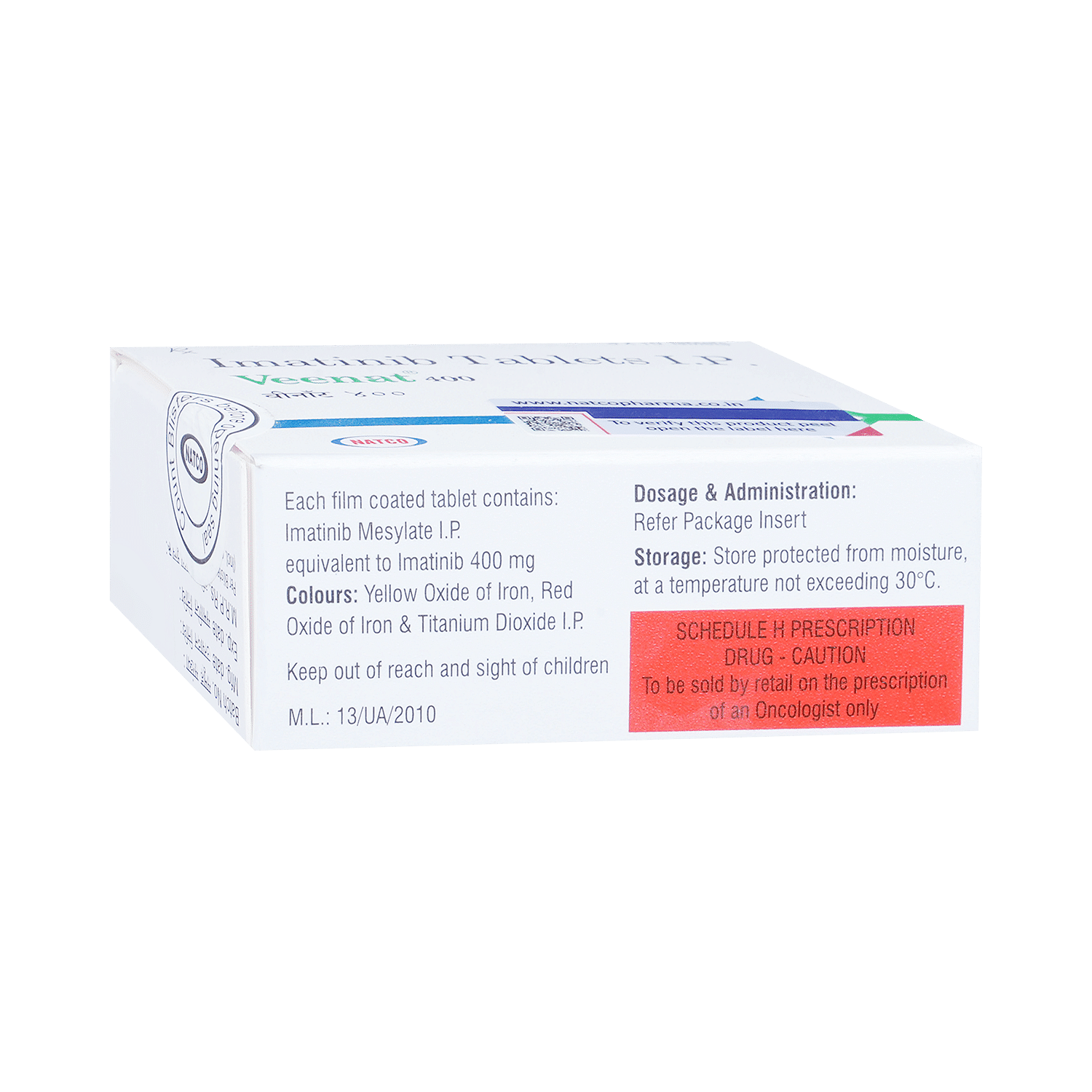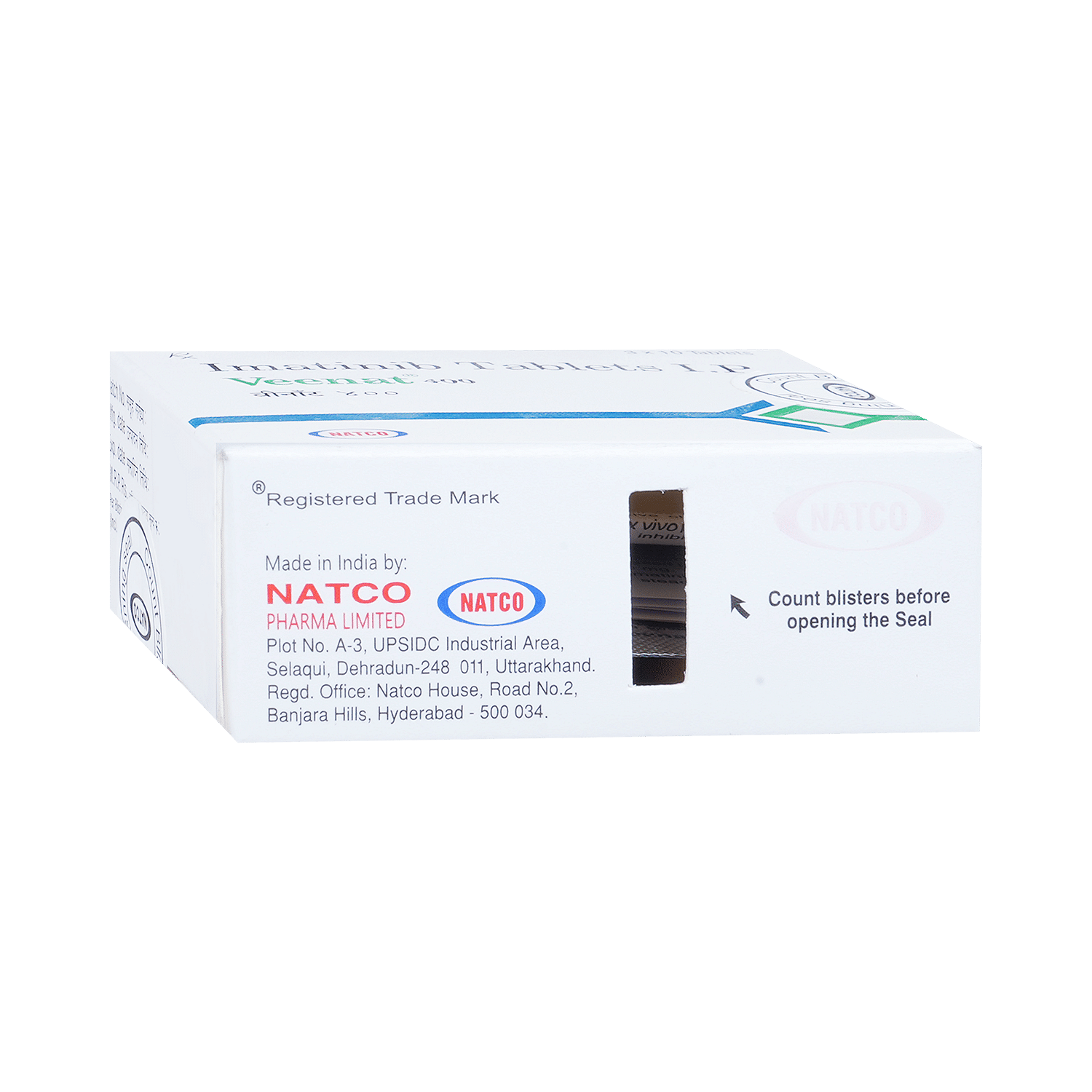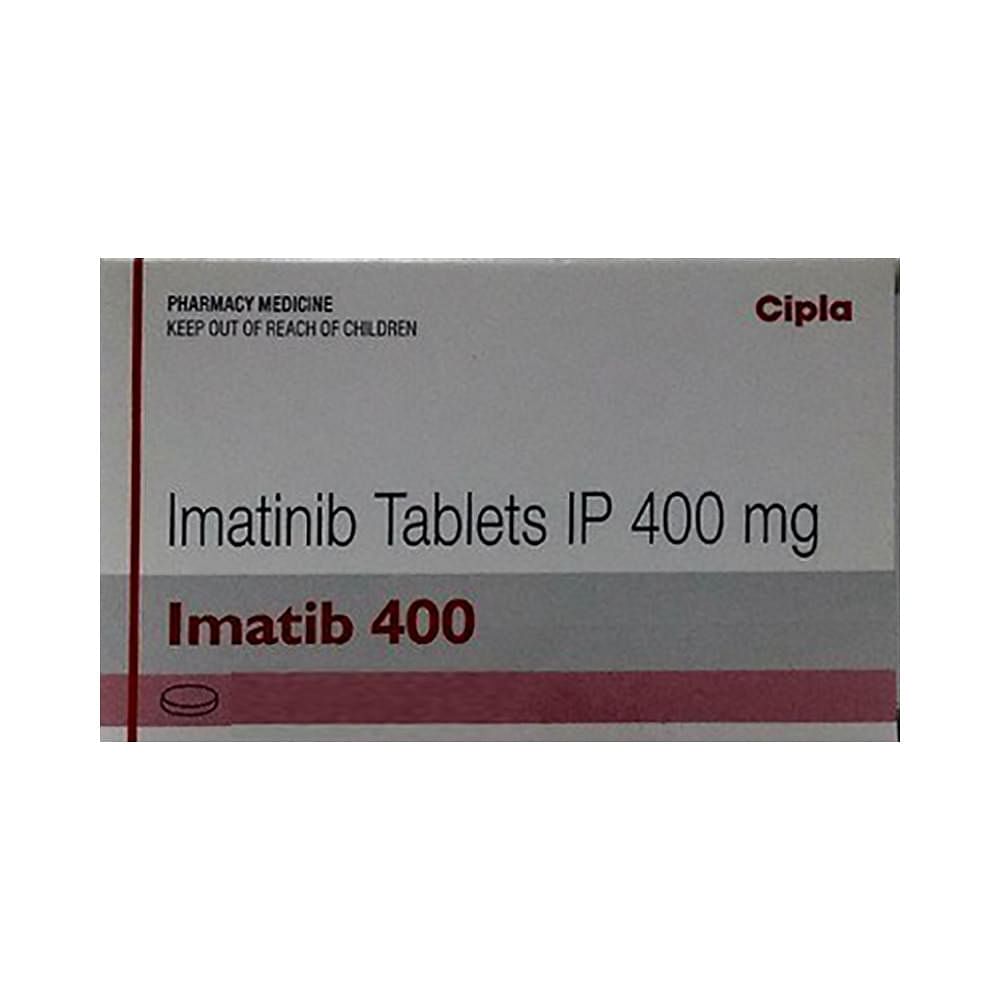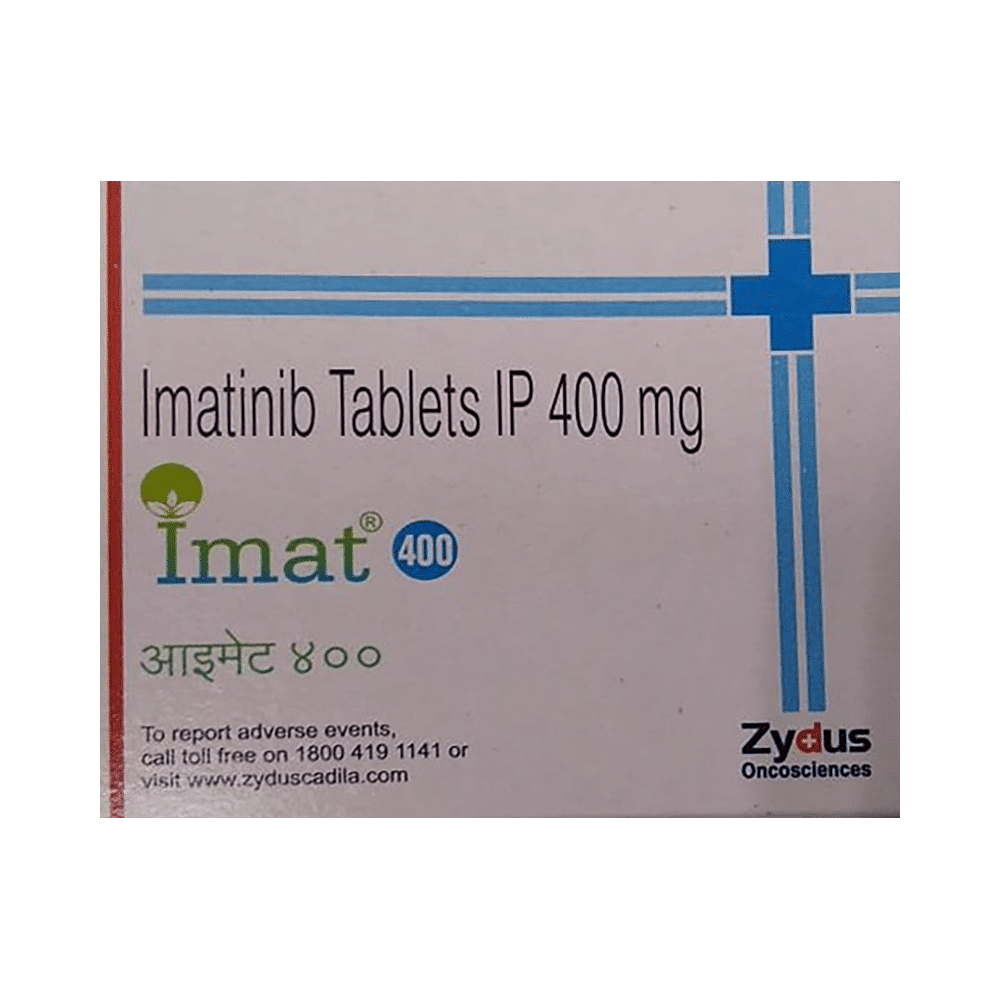


Veenat 400 Tablet
Manufacturer
Natco Pharma Ltd
Salt Composition
Imatinib mesylate (400mg)
Key Information
Short Description
Veenat 400 Tablet is used to treat several types of cancers, including blood cancers and gastrointestinal stromal tumors.
Dosage Form
Tablet
Introduction
Veenat 400 Tablet is an anti-cancer medication that works by targeting specific proteins that contribute to the growth and spread of cancer cells. It is most commonly prescribed to treat blood cancers (chronic myeloid leukemia and acute lymphocytic leukemia) and gastrointestinal stromal tumors. The medicine should be taken with food. Take it at the same time each day to get the most benefit. Continue taking it as long as your doctor advises for it. The duration of treatment varies according to your need and response to treatment. Taking it in the wrong way or taking too much can cause very serious side effects. It may take several weeks or months for you to see or feel the benefits but do not stop taking it unless your doctor tells you to.
Directions for Use
Take this medicine in the dose and duration as advised by your doctor. Swallow it as a whole. Do not chew, crush or break it. Veenat 400 Tablet is to be taken with food.
Safety Information
Side Effects
edema nausea vomiting muscle cramps musculoskeletal pain diarrhea rash fatigue abdominal pain
Alcohol Warning
It is not known whether it is safe to consume alcohol with Veenat 400 Tablet. Please consult your doctor.
Breastfeeding Warning
Veenat 400 Tablet is probably unsafe to use during breastfeeding. Limited human data suggests that the drug may pass into the breastmilk and harm the baby. Lactating women should not breastfeed while using this drug and 15 days after stopping it.
Pregnancy Warning
Veenat 400 Tablet is unsafe to use during pregnancy as there is definite evidence of risk to the developing baby. However, the doctor may rarely prescribe it in some life-threatening situations if the benefits are more than the potential risks. Please consult your doctor.
Interacting Medicines
Atorvastatin Carbamazepine Fluvastatin Lovastatin
How it works
Veenat 400 Tablet is an anti-cancer medication. A protein enzyme bcr-abl tyrosine kinase responsible for the growth of abnormal proliferation of cancer cells. This medicine inhibits the proliferation and induces apoptosis (planned cell death) in bcr-abl positive cells (cancer cells). This is how it works to stop or slow the spread of cancer.
Quick Tips
Always take it with food and a full glass of water to prevent nausea. It may cause dizziness or blurred vision. Do not drive or do anything requiring concentration until you know how it affects you. Water retention and swelling are very common side effects of Veenat 400 Tablet. Notify your doctor if you have unexpected rapid weight gain. Do not change the dose or discontinue use without consulting your doctor. Notify your doctor about all the medications you are taking, including over the counter medicines and dietary supplements. Your doctor may get regular blood tests done to monitor your liver function and the number of blood cells in your blood.
Related Medicines

Imatib 400 Tablet

Imat 400 Tablet

Resimat 400mg Tablet

Admine 400 Tablet

Glivec 400mg Tablet

Mytinib 400 Tablet

Mitinab 400mg Tablet

Imalek 400mg Tablet

Entinib 400mg Tablet

Imatikast 400mg Tablet
Frequently asked questions
Can Veenat 400 Tablet be taken with food?
Yes, the best way to take it is with a glass of water and food. This prevents irritation in the food pipe and stomach. If you cannot swallow it, put the tablets in a glass of water or apple juice (approximately 50 ml for a 100 mg tablet and 200 ml for a 400 mg tablet). Stir it with a spoon to make it uniform and drink it immediately.
Is it safe to drive while taking Veenat 400 Tablet?
Veenat 400 Tablet may cause dizziness, lightheadedness or drowsiness in some people. Before driving a car or operating machinery, make sure you know how you react to the medication.
What precautions need to be followed while taking Veenat 400 Tablet?
While taking Veenat 400 Tablet, ensure that you follow all instructions given by your doctor carefully. Regular follow-up appointments are essential to monitor treatment effectiveness. Blood tests, weight checks, and urine tests may be necessary to detect any potential side effects early on. It's crucial to use a reliable method of contraception to prevent pregnancy during treatment with Veenat 400 Tablet. If you become pregnant while taking this medicine, inform your doctor immediately. Lastly, always alert your doctor if you are about to start any new medication and disclose that you are already taking Veenat 400 Tablet.
Ever since I started using Veenat 400 Tablet, I have noticed that I develop rashes and severe itching when I have sun exposure. Is it because of the medicine or the disease?
This medication may make your skin more sensitive to sunlight than usual, increasing susceptibility to sunburn. Sun exposure can cause skin rashes, itching, redness, or severe sunburn. Always wear protective clothing outdoors, and use a broad-spectrum sunscreen with an SPF of 15 or higher when you are outdoors. If you experience burning sensations on your skin, contact your doctor immediately.
The doctor has advised me not to take any medicine on my own while taking Veenat 400 Tablet. Should I consult my doctor even if I need to take paracetamol for my fever?
Yes, there are many medicines that can interfere with Veenat 400 Tablet, including paracetamol. Therefore, do not self-medicate while taking Veenat 400 Tablet. Other medications that might interact with Veenat 400 Tablet include cyclosporin, dexamethasone (a steroid), warfarin, antiviral medicines used to treat AIDS, and some bacterial infection treatment medications. Consult your doctor before taking any medication and inform them of your Veenat 400 Tablet therapy.
Can I expect that if I take Veenat 400 Tablet regularly and as advised by the doctor for CML, I will be cured?
Veenat 400 Tablet has shown effectiveness in many CML cases. The chances of survival have also improved after using this medication. Your doctor can provide you with more specific information about your individual treatment plan based on your current health status, blood test results, the response to therapy, any existing medical conditions, and other relevant factors.


